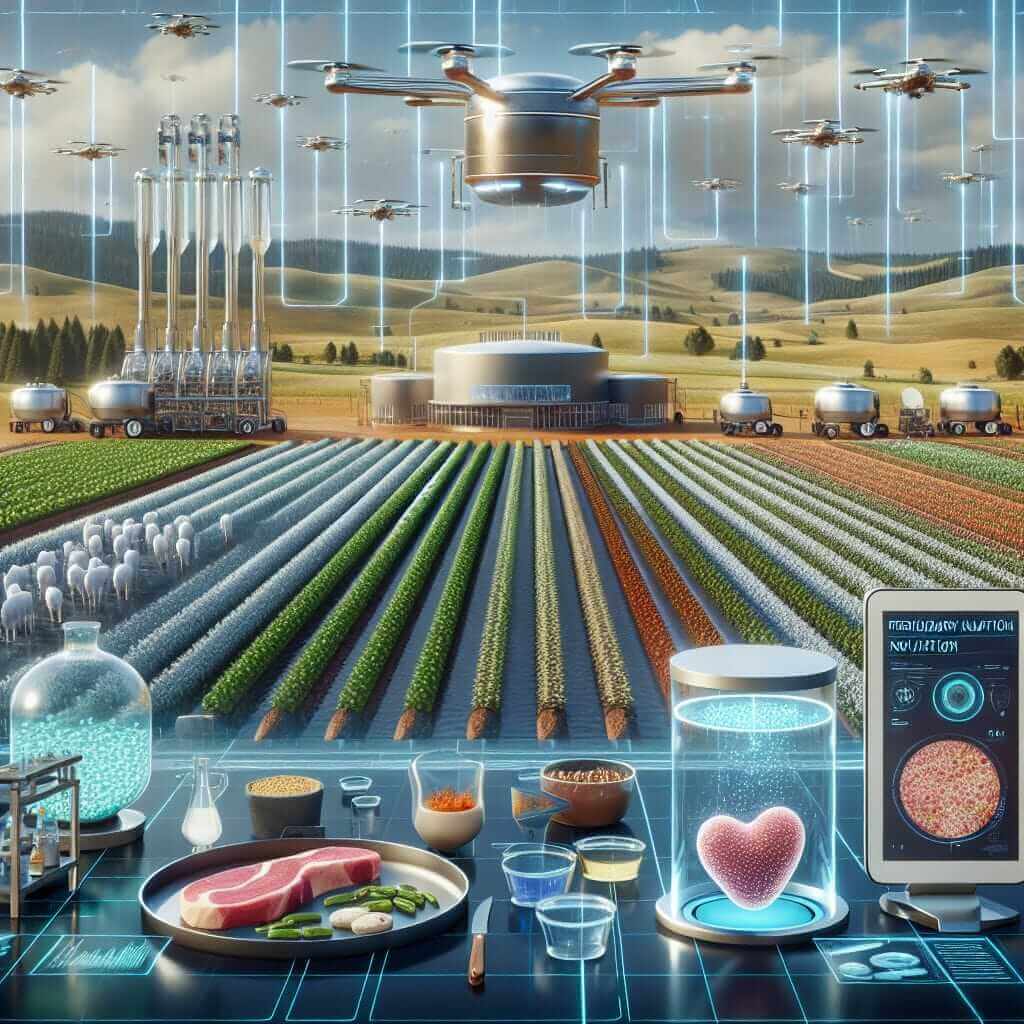The IELTS Reading test can be one of the most challenging parts of the exam. Understanding complex texts and answering questions accurately requires practice and a firm grasp of the language. Today, we will explore a particularly relevant and timely topic: “How is technology reshaping the food industry?” This topic has been popular in past IELTS exams and is likely to reappear due to its growing significance in our daily lives. Let’s dive in and create a detailed and engaging reading practice section to help you prepare for your IELTS test.
IELTS Reading Practice: How is Technology Reshaping the Food Industry?
Reading Passage
Technology and the Future of Food Industry
Innovations in technology are dramatically transforming the food industry, influencing how food is produced, processed, and consumed. From precision farming using data analytics and drones to lab-grown meat and personalized nutrition plans, technological advancements are reshaping an industry burdened with the task of feeding an ever-growing global population in a sustainable manner.
Precision agriculture involves the use of GPS technology, sensors, and data analytics to optimize the growth conditions and yields of crops. By precisely applying water, fertilizers, and pesticides only when and where they are needed, farmers can reduce waste, lower costs, and minimize environmental impact. This technology ensures higher efficiency and productivity in food production.
Another groundbreaking innovation is lab-grown meat, also known as cultured or cell-based meat. This technology involves cultivating animal cells in a controlled environment to produce meat without the need for traditional livestock farming. It addresses various ethical and environmental concerns associated with meat production, such as animal welfare and greenhouse gas emissions, offering a sustainable alternative to conventional meat.
Personalized nutrition, driven by advancements in genomics and data science, is another area where technology is making a significant impact. By analyzing an individual’s genetic makeup, lifestyle, and dietary preferences, personalized nutrition plans can be created to cater to specific health needs and goals. This approach not only improves individual health outcomes but also promotes preventive healthcare.
Moreover, delivery services and smart kitchen appliances are enhancing the consumer food experience. With the growth of food delivery platforms and the advent of smart fridges and automated cooking devices, consumers can access a wider variety of food options more conveniently than ever before.
As technology continues to evolve, its role in the food industry will only expand, potentially leading to more sustainable, ethical, and personalized food solutions. The integration of these technologies not only aims to improve efficiency but also focuses on addressing global food security challenges.

Questions
Multiple Choice
-
What is one of the main benefits of precision agriculture?
A. It increases the amount of pesticides used.
B. It reduces waste and minimizes environmental impact.
C. It makes farming more traditional.
D. It encourages more people to become farmers. -
What does lab-grown meat aim to address?
A. The decreasing population.
B. Ethical and environmental concerns.
C. The use of pesticides in agriculture.
D. The shortage of smart kitchen appliances.
True/False/Not Given
-
Precision agriculture only applies fertilizers when needed.
- True
- False
- Not Given
-
Personalized nutrition does not take an individual’s lifestyle into account.
- True
- False
- Not Given
Matching Information
Match the technology with its description:
5. Precision agriculture
- A. Cultivating animal cells to produce meat.
- B. Using GPS and sensors to optimize crop production.
- C. Creating nutrition plans based on genetic data.
- Personalized nutrition
- A. Cultivating animal cells to produce meat.
- B. Using GPS and sensors to optimize crop production.
- C. Creating nutrition plans based on genetic data.
Answer Keys and Explanations
- B. Precision agriculture reduces waste and minimizes environmental impact by optimizing the resources used in farming.
- B. Lab-grown meat aims to address ethical and environmental concerns such as animal welfare and greenhouse gas emissions.
- True. The passage states that precision agriculture involves applying fertilizers only when needed.
- False. The passage indicates that personalized nutrition plans consider an individual’s genetic makeup, lifestyle, and dietary preferences.
- B. Precision agriculture uses GPS and sensors to optimize crop production.
- C. Personalized nutrition creates nutrition plans based on genetic data.
Common Mistakes
- Misinterpreting the passage: Ensure you read the entire passage carefully before jumping to conclusions.
- Overlooking key details: Pay close attention to the specifics mentioned, as they often hold the answers.
Vocabulary
- Precision agriculture: (noun) /prɪˈsɪʒ.ən æɡ.rɪˌkʌl.tʃər/ Advanced farming techniques using technology to enhance crop yields.
- Cultivating: (verb) /ˈkʌl.tɪ.veɪt/ To grow or raise something under controlled conditions.
- Genomics: (noun) /dʒɪˈnəʊ.mɪks/ The study of genomes, the complete set of DNA in an organism.
Grammar
- Relative Clauses: Used to provide extra information about a noun (e.g., “Precision agriculture, which involves using GPS technology…”).
- Structure: [Main Clause] + [Relative Pronoun] + [Relative Clause]
- Example: “Lab-grown meat, which addresses ethical concerns, offers a sustainable alternative.”
Conclusion
To excel in the IELTS Reading test, practice is key. By working on passages like this and understanding the common pitfalls, you can improve your comprehension skills and answer questions more accurately. Remember to broaden your vocabulary and refine your grammar to boost your overall performance. Good luck with your studies and your upcoming IELTS exam!